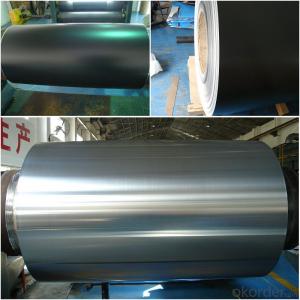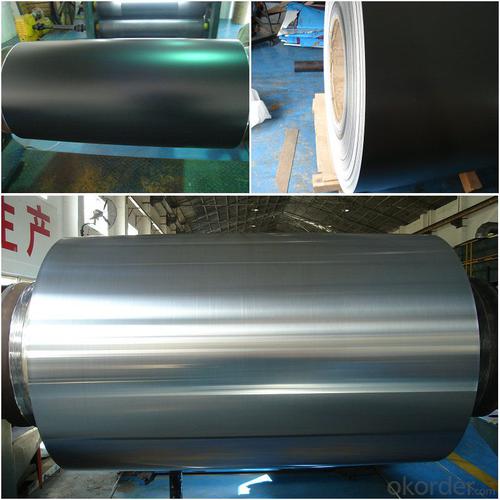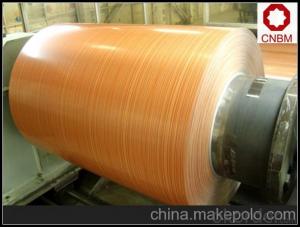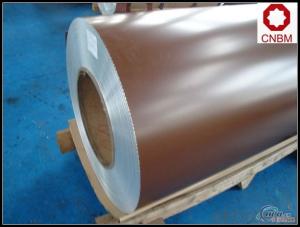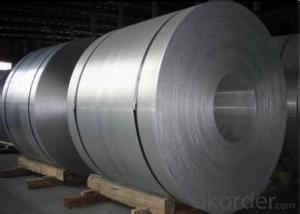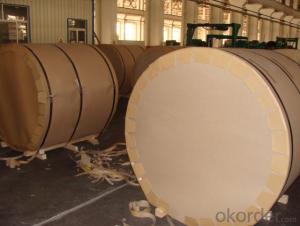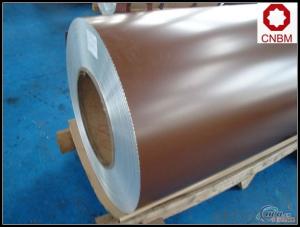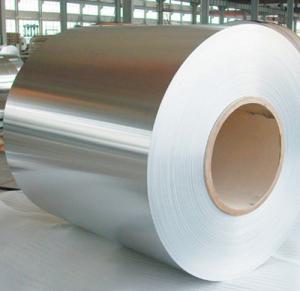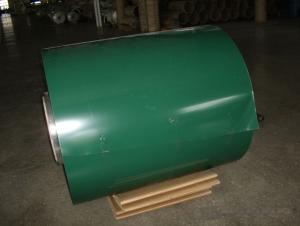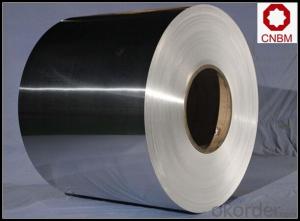Menards Aluminum Coil - Black Color Coated Mill Finish Aluminum Rolls
- Loading Port:
- China Main Port
- Payment Terms:
- TT OR LC
- Min Order Qty:
- -
- Supply Capability:
- -
OKorder Service Pledge
OKorder Financial Service
You Might Also Like
Color coated aluminum coil is a material with excellent acid-resistance and alkali-resistance. The coating layeris even with bright color to last for a very long time. It is a greendecoration material with the characters of environment protection,flame-resistance, and groovy colors. In nowadays, the color coatedaluminum coil has become the popular material for top grade decoration. With our advance professional aluminum coated technique, wecan custom various aluminum coils ,like coated aluminum coil , Color coatedaluminum coil , embossed aluminum sheet with the color and size which youdemands.
1)Process: pre-treatment, continuous painting and baking for times .
2)Material: high quality material, aluminum sheets from South West AluminumIndustry Company in China, pre-treatment material from Henkel & Chemtellfrom Germany, more than 70% of PVDF coating from PPG Corp., the USA andpolyester from Sweden Becker Industrial Coating Co., Ltd.
3) Ourproducts can keep excellent quality and stability.
4)Thickness: 0.06 - 1.0mm; width: 20 - 1,590mm
Applications:
The aluminum coils are widely used in ACP/curtainpanel/honey comb panel/shutter/roofing and most of the decoration areas. Withthe superior quality and advanced management, our products had been export toEuro/North America /East Asia and many other areas and countries.
PEAluminum Coating Coils for ACP
Featuresof PE Aluminum Sheet:
1.Adopting precision rolling coating technology, our PVDF and PE coated coil canensure excellent adhesive without coating omission.
2. For thePE coated aluminum coil we produced, there are various colors for your choice.
3. Usinginfrared heating technology to protect environment from pollution.
4. Ourcoated aluminum coil has four-roller coating line, uniform coating thicknessand good features.
RawMaterial of the PE Aluminum Coating Coils:
1. Aluminum Coil: high strength aluminum withalloy of AA1100 (aluminum alloy is available with AA3003, AA3005, AA5005according to customer)
2. Surface Paint: PE, PVDF and specialpaints.
Specification of PE Aluminum Coating Coil
Width: 20mm~1590mm
Thickness: 0.06mm~1.0mm
External Diameter: ≤ 1500mm
Internal Diameter: 405mm, 505mm, 150mm, 75mm
Coil weight: ≤ 4000kg
PE coated aluminum coil is processed throughthe technics of roller coating and baking with precise polyester paints. Itscolor is glossy and with variety of colors enabling you to choose easily.Chromatic aberration is small, impact resistance is strong and easy to beprocessed, and all its performance has reached or surpassed the nationalcriteria. The products are widely used in indoor and door decoration, ceilings,room surface tiles, corrugated boards, wallpanels, advertisement boards, counters, home appliances, decoration in and outof autos and boats.
Performance of thecoating
Aluminum Thickness | Coating Thickness | MEK | T- Bend | Impact | Adhesion | Pencil Hardness | Boiling Water Proof |
0.3-1.5mm | ≥18μm | ≥100 Times | ≤2T | 50 kg•cm | 0 Grade | ≥HB | no change within 2 hours |
0.2-0.28mm | ≥18μm | ≥100 Times | ≤2T | 30kg•cm | 0 Grade | ≥HB | no change within 2 hours |
0.15-0.18mm | ≥18μm | ≥100 Times | ≤3T | 20 kg•cm | 0 Grade | ≥HB | no change within 2 hours |
0.08-0.12mm | ≥16μm | ≥80 Times | ≤4T | 10 kg•cm | ≤1 Grade | ≥HB | no change within 1 hour |
0.022-0.06mm | ≥12μm | ≥50 Times | - | - | ≤1Grade | ≥HB | no change within1 hour |
Color of Card
PE (polyester)
PE
Color Match
For custom' color requests, we can deal as following:
1. Supply a physical sample of custom color. A color sample on metal ispreferred. If other, it is also acceptable. But the color matching rate may benot good as color on metal.
2. New color sample is usually offered by our paint supplier in 5-7 days,special color should be in 7-10 days.
3. Upon receipt of color sample, please approve in writing as soon as possible.Once you approved, we will arrange purchasing and production.
Note: Color difference maybe occurred in different production batch, so it issuggested all panels are placed in one order for same project. And keep samedirection as arrow on protective film when installing to avoid any colordifference by vision
- Q: What is the typical hardness of aluminum coils?
- The typical hardness of aluminum coils can vary depending on the specific alloy and temper used, but generally falls within the range of 40-70 on the Rockwell B scale.
- Q: I take an extracurricular aircraft class, and I got the okay to take some old painted sheet aluminum for another project I'm working on. The problem is, what I'm using it for I need bare aluminum. I heard around that air crafts are painted with something that regular (store-bought) paint stripper can't remove. Is this true? I am aware of the fact that stripping something like that will result in a toxic paint sludge, so I've taken precautions for that. I just need to know if heavy-duty paint stripper from Home Depot will do the job. Thanks :)
- It depends on how old the paint is. If your panel was painted before the 1970's, then pretty much any chemical paint stripper will work. After the 70's, they started using epoxy based primers and paints and those are more resistant to chemical strippers. In any case, wear rubber gloves and breathing protection while using chemical paint strippers. They can burn your skin and create toxic fumes when in use.
- Q: What are the factors that affect the cost of aluminum coils?
- There are several factors that can affect the cost of aluminum coils, including the current market demand and supply, the quality and grade of the aluminum used, the size and thickness of the coils, transportation and logistics costs, currency exchange rates, and any applicable taxes or tariffs.
- Q: How do aluminum coils compare to magnesium coils in terms of strength?
- Aluminum coils generally have higher strength compared to magnesium coils. Aluminum is known for its excellent strength-to-weight ratio, making it a popular choice in various industries. It has a higher tensile strength and better resistance to deformation under stress compared to magnesium. Additionally, aluminum has a higher yield strength, which means it can withstand greater loads before experiencing permanent deformation. On the other hand, magnesium is lighter than aluminum, but it tends to have lower strength properties. While magnesium coils might be advantageous in some applications where weight is a critical factor, aluminum coils are generally preferred in terms of strength and durability.
- Q: What are the different elongation values of aluminum coils?
- The elongation values of aluminum coils can vary depending on the specific alloy and temper of the aluminum. Generally, aluminum coils have excellent elongation properties, which means they can be stretched or deformed without breaking. For example, the commonly used alloy 3003-H14 has an elongation value of around 20-30%. This means that the aluminum coil can stretch up to 20-30% of its original length before it breaks. On the other hand, high-strength alloys like 7075-T6 have lower elongation values of around 9-13%. These alloys are designed for applications where strength is crucial, but they sacrifice some elongation properties. It's important to note that elongation values can also be influenced by the processing and treatment of the aluminum coils. For instance, annealing or heat treatment can improve the elongation properties of certain alloys. In summary, the elongation values of aluminum coils can range from 9% to 30%, depending on the alloy, temper, and processing methods used.
- Q: What is the thermal conductivity of aluminum coils?
- Compared to other metals, aluminum coils exhibit a relatively high thermal conductivity. With approximately 237 W/m·K, aluminum possesses excellent heat conduction capabilities. This particular attribute renders aluminum coils well-suited for situations necessitating efficient heat transfer, like heat exchangers or air conditioning systems. The remarkable thermal conductivity of aluminum enables rapid and effective dissipation of heat, thereby guaranteeing optimal performance and energy efficiency across diverse industrial and residential environments.
- Q: What is the cost involved in the production of an aluminum coil?
- <p>The cost to produce an aluminum coil varies significantly based on several factors. These include the cost of raw materials, energy costs for melting and rolling, labor, and overhead expenses. Additionally, the price of aluminum on the commodities market directly impacts the cost. As of recent market trends, the cost can range from a few hundred to several thousand dollars per ton, depending on the specific alloy and thickness of the coil. It's essential to consider the current market prices for aluminum and the efficiency of the production process when calculating the cost to produce an aluminum coil.</p>
- Q: Is aluminum silicate roll felt the same as aluminum silicate acupuncture blanket?
- No, the unit weight of aluminum silicate fiber felt is greater than that of aluminum silicate acupuncture blanket. Both are thermal insulation and fire-proof material and have the same function.
- Q: What are the common international standards and certifications for aluminum coils?
- There are several common international standards and certifications for aluminum coils that ensure their quality and compliance with industry requirements. These standards and certifications include: 1. International Organization for Standardization (ISO): ISO 9001 is a globally recognized standard for quality management systems. It ensures that the manufacturer has implemented effective quality control processes throughout their production and supply chain, resulting in consistent and reliable aluminum coils. 2. American Society for Testing and Materials (ASTM): ASTM International develops and publishes technical standards for various materials, including aluminum coils. ASTM B209 is a commonly referenced standard for aluminum and aluminum-alloy sheet and plate, which covers the general requirements for flat-rolled aluminum products. 3. European Norms (EN): EN 485 is a European standard that specifies the mechanical properties, dimensions, and tolerances of aluminum and aluminum alloys. It ensures that the aluminum coils manufactured in Europe comply with the specified quality and performance requirements. 4. Japan Industrial Standards (JIS): JIS H 4000 is a set of standards developed by the Japanese Industrial Standards Committee for aluminum and aluminum alloys. It covers the chemical composition, mechanical properties, and dimensions of aluminum coils, ensuring their suitability for various applications. 5. Aluminium Stewardship Initiative (ASI) Certification: ASI is a global, multi-stakeholder initiative that promotes responsible production, sourcing, and stewardship of aluminum. The ASI Certification ensures that aluminum coil manufacturers follow strict environmental, social, and governance standards, including responsible sourcing of raw materials and sustainable production practices. 6. United States Aluminum Association Certification: The Aluminum Association is a trade association in the United States that represents the aluminum industry. Their certification programs, such as the Aluminum Transportation Group (ATG) Certification, ensure that aluminum coils meet the industry's specific requirements for automotive, aerospace, and other transportation applications. These standards and certifications provide assurance to customers that the aluminum coils they are purchasing meet the necessary quality, performance, and sustainability standards. It is important for manufacturers and suppliers to adhere to these international standards to gain credibility and maintain the trust of their customers in the global market.
- Q: How do aluminum coils perform in high-pressure applications?
- Aluminum coils generally perform well in high-pressure applications due to their inherent strength and durability. The high-pressure environment requires materials that can withstand the force and maintain their structural integrity without deformation or failure. Aluminum coils are known for their excellent tensile strength, which allows them to handle high-pressure conditions without buckling or collapsing. Furthermore, aluminum is highly resistant to corrosion, making it ideal for applications where exposure to moisture or harsh chemicals is a concern. This corrosion resistance ensures that the coils will not deteriorate or weaken over time, even under high-pressure conditions. In addition to their mechanical properties, aluminum coils also possess excellent thermal conductivity. This property allows them to efficiently transfer heat away from the high-pressure environment, thereby preventing overheating and maintaining stable operating conditions. The thermal conductivity of aluminum also aids in rapid heat dissipation, enhancing the overall performance of the coils in high-pressure applications. Moreover, aluminum coils are lightweight compared to other metals, making them easier to handle and install in high-pressure systems. Their lightweight nature also reduces the overall weight of the system, which can have advantages in terms of energy consumption and transportation costs. However, it is important to note that the specific performance of aluminum coils in high-pressure applications may vary depending on the grade and thickness of the aluminum used. It is crucial to select the appropriate aluminum alloy and gauge based on the specific requirements of the application to ensure optimal performance and longevity.
Send your message to us
Menards Aluminum Coil - Black Color Coated Mill Finish Aluminum Rolls
- Loading Port:
- China Main Port
- Payment Terms:
- TT OR LC
- Min Order Qty:
- -
- Supply Capability:
- -
OKorder Service Pledge
OKorder Financial Service
Similar products
Hot products
Hot Searches
Related keywords
